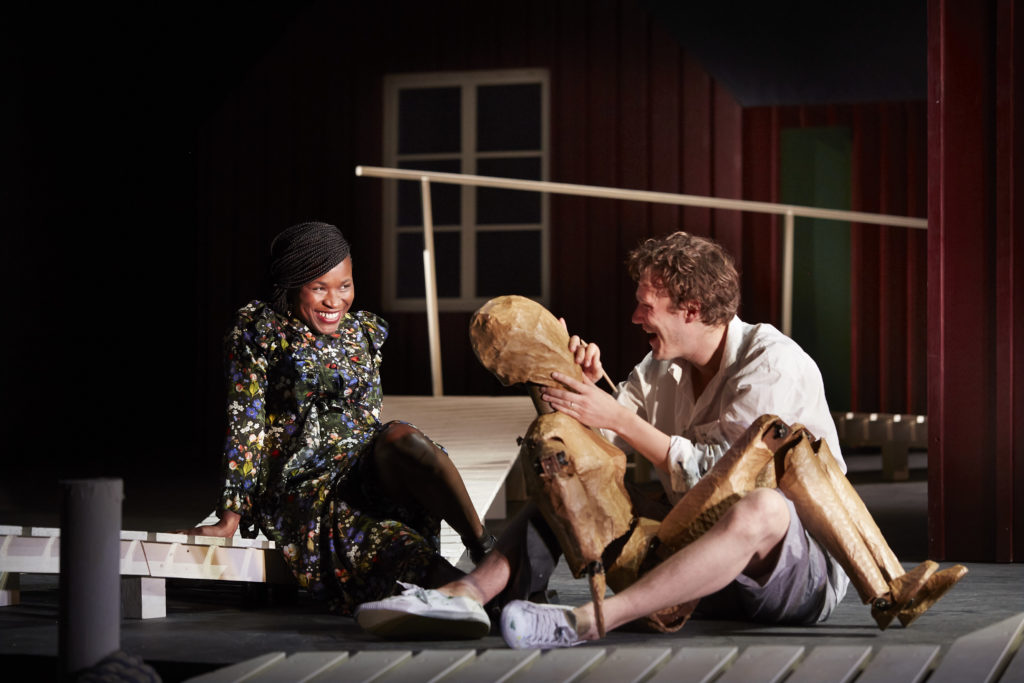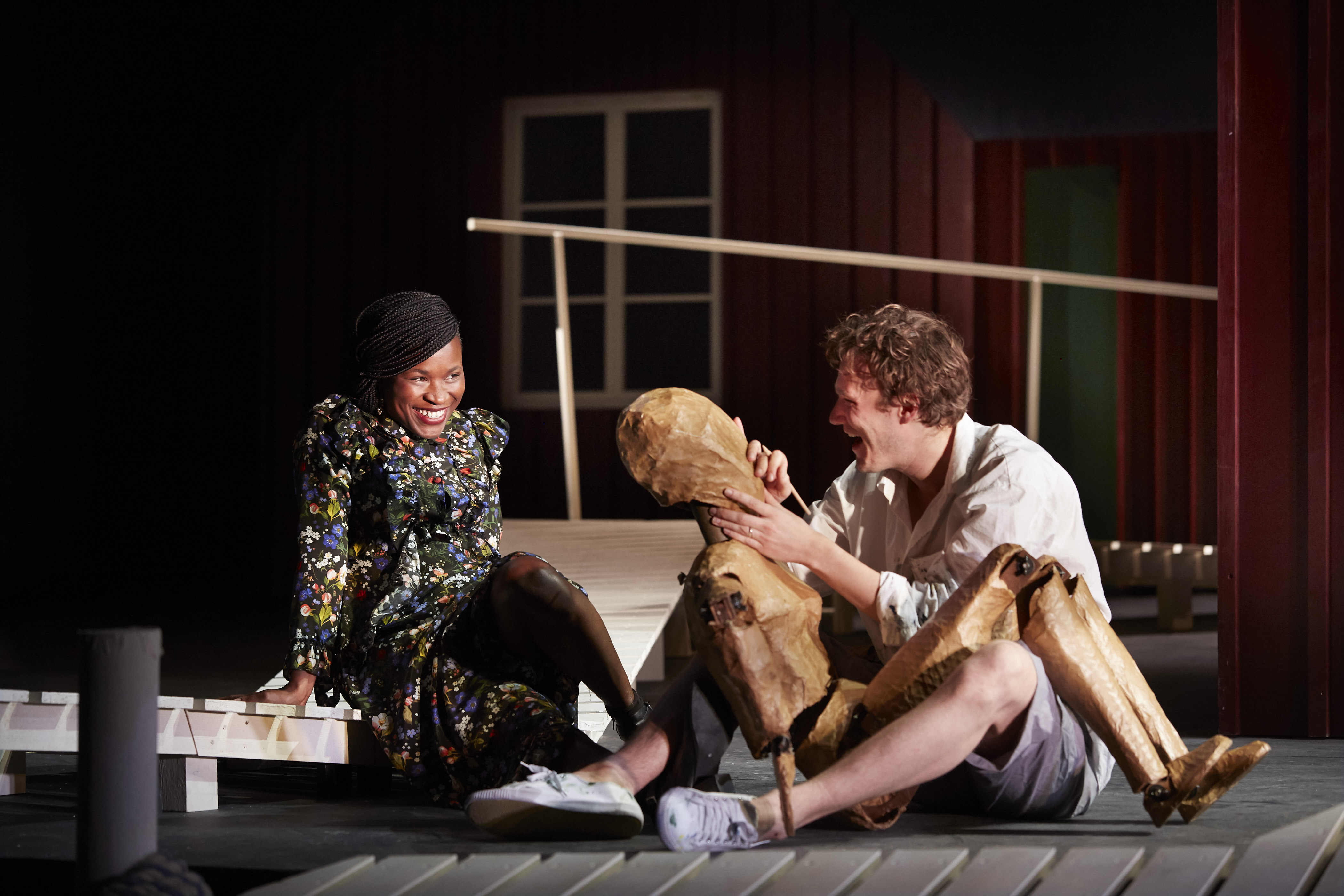
Creditors
I really wanted an interval. And I was not alone: one audience member, at the end of the first act, when the stage went dark, started to clap hesitantly before realising that they were all alone, and the lights went up again on stage. An hour and fifty minutes is not an eternity to sit and watch a performance, but the very dense language and the presence of only three characters made it necessary to listen quite hard to uncover the motivations and relationships being revealed on stage. And there was a perfect opportunity at the end of the first Act, before the arrival of Tekla, a character who already intrigues from the descriptions of her heralded in the conversations between Gustav and Adolph. There was an expectation, and a natural break – a perfect time to pause.
In short, this was quite hard work to watch. One, because of the psychologically dense and uncomfortable environment, two, because of the complex ideas and wide-ranging themes explored in the often very misogynistic language, and three, because a visit to the theatre is a night out to be enjoyed, discussed and reflected on, even if one is challenged by what is seen and heard on stage.
The staging was sparse but intriguing, and the device of four Girl Guides, walking and acting robotically in tandem, heralded with starkly modern music at each appearance, serve to break up the density of this powerful discourse on male / female sexual politics and on psychological manipulation. But it didn’t add any depth to my understanding of this work – it was a slightly puzzling repeating interlude and visual motif that did not illuminate the work for me.
Although written in 1888, the language, benefitting from a new adaptation by David Greig, is still fresh, and occasionally very, very funny. Strindberg was essentially doing psychological analysis before psychology was around. But oh my, it is still so dense, and the characters all have deep problems, so there is a lot of filtering of information for the audience to do. What is the motivation of Gustav as he, Iago-like, undermines the beliefs of Adolph and his confidence in the faithfulness of his wife Tekla? Is he, we start to realise, really her ex-husband? Is Tekla really honest in her dealings with Adolph? Is Adolph really so weak minded if he has won the affections of Tekla and has helped her in her literary career?
The roles are, it must be said, all played superbly. Edward Franklin as Adolph is convincingly overwrought and naive. The sly, calculating nature of Gustav is perfectly embodied by Stuart McQuarrie, and Adura Onashile’s Tekla is strong, vivacious, and has real physical and emotional presence throughout. They are all thoroughly credible in their roles.
And in the second act, when the action moves into the interior of the seaside hut, there’s a striking innovation in how we see things, with a projection screen descending over the top of the stage, and a monochrome video from the interior allows us to see a quite different aspect of the interaction between characters. The camera is not static, ranging around as Gustav and Tekla interact. This is a strikingly effective device, and the lack of colour gives an iconic power to the larger than life close-ups.
It’s here that the fluidity of Stewart Laing’s design and direction, along with the pure craft of McQuarrie and Onashile really shines through – because we can really see them up close. Every eye movement, slight gesture and nervously clasped drink is illuminated. And outside the hut, the static but distraught figure of Adolph eavesdrops as Tekla’s fidelity crumbles and then is resurrected, and Gustav’s devious manipulation is exposed. An alpha male and a clever, independent woman – but both vulnerable and hurt in different ways. This part is great theatre – an arresting, novel way to illuminate character and show us raw emotion.
But in conclusion, I did not come away with quite the feeling of enlightenment or insight that I had hoped for tonight. It was a spectacle, but not truly spectacular. The video device was hugely successful. The dialogue was sometimes witty, sometimes shocking, and always deftly delivered, but there was some vital spark missing, and a lack of sexual tension. For fans of Strindberg, and students of theatre, I would certainly say: you must see this. But I can’t be too enthusiastic beyond that, feeling a sense of slight disappointment. Strindberg described his play as a tragicomedy, and it is perhaps sitting somewhere between the two genres that something was lost.
★★★ 3 stars
Creditors
Lyceum Theatre, Edinburgh
27 April – 12 May 2018
PREVIEWS, 7.30pm
27, 28 & 30 April
£10 Preview tickets on sale 27 March
EVENINGS, 7.30pm
Tuesday – Saturday
MATINEES from 2 May, 2pm
Wednesdays and Saturdays



